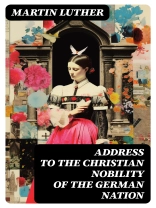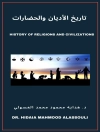In ‘Address to the Christian Nobility of the German Nation, ‘ Martin Luther presents a fervent critique of the ecclesiastical and political structures of his time, advocating for a reformation of both church and state. Written in 1520, this bold treatise employs a direct and accessible vernacular style, effectively addressing the common German populace and their leaders. Luther articulates the urgent need for the nobility to take up their Christian responsibilities, challenging the corruption within the Church and calling for reforms that would empower local governance and diminish papal authority. The pamphlet serves as a pivotal document in the larger context of the Protestant Reformation, demonstrating Luther’s passionate belief in the priesthood of all believers and the importance of making spiritual authority accountable to laypersons. Martin Luther, a seminal figure in Christian history, was a theologian whose own struggles with faith and the ecclesiastical hierarchy profoundly shaped his revolutionary thoughts. His academic background and experiences as a monk led him to confront the excesses of the Catholic Church, particularly the sale of indulgences, ultimately sparking a movement that sought to return Christianity to its scriptural roots. Luther’s commitment to theological reform and social justice drove him to engage with the ruling class through this address, aiming to broaden the reach of his vision for a more just and equitable church. ‘Address to the Christian Nobility of the German Nation’ is highly recommended for readers interested in the origins of the Protestant Reformation and the intersections of faith and politics. Luther’s compelling arguments resonate even today, inviting contemporary readers to reflect on issues of institutional authority and personal conscience in matters of faith. This work is essential for understanding not only the historical context of the Reformation but also the lasting implications of Luther’s advocacy for a more engaged and responsible laity.
Tentang Penulis
Martin Luther (1483–1546) was a seminal figure in the Protestant Reformation that swept across Europe in the 16th century. A theologian, university professor, and Augustinian monk, Luther’s writings and actions irrevocably altered the landscape of Christianity and Western religious thought. Born in Eisleben, Saxony, in what is today Germany, Luther initially intended to study law but turned to divinity and entered a monastery after a life-altering thunderstorm incident. Having become increasingly disenchanted with the Catholic Church’s teachings and practices, notably the sale of indulgences, Luther penned the ‘Ninety-five Theses’ in 1517 which he famously nailed to the door of the Wittenberg Castle Church. This act is commonly celebrated as the beginning of the Reformation. One of Luther’s crucial works, ‘Address To the Christian Nobility of the German Nation’ (1520), laid out a compelling critique of the Church’s ecclesiastical structures and promoted the idea of a ‘priesthood of all believers.’ It significantly contributed to the shift in how church authority and scripture were perceived, particularly the claim that laypersons have as much spiritual power as the clergy. Luther’s translation of the Bible into German democratized religious texts, making them accessible to the general populace and thereby shaping the German language itself. Luther’s legacy extends beyond his written work; his teachings influenced the development of Protestantism in numerous strands and had lasting implications for religion, politics, and society.




